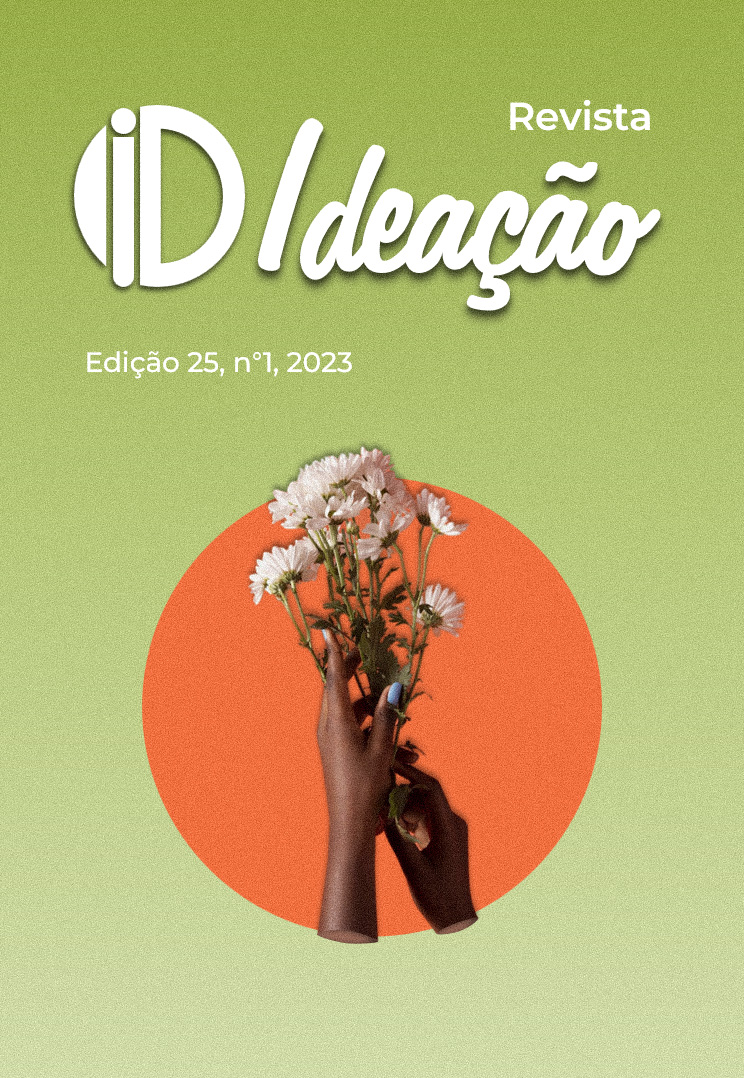Ecos del Bom Crioulo
representación y permanencia
DOI:
https://doi.org/10.48075/ri.v25i1.30006Palabras clave:
homossexualidade, negritude, afeto, Bom CriouloResumen
Este trabajo busca analizar la permanencia de la imagen del hombre negro homosexual en la literatura brasileña, cuyo origen se remonta a la novela Bom Crioulo, de Adolfo Caminha, publicada en 1895. La narración trata de la relación amorosa interracial entre dos marineros y su La representación, problemática en términos de negritud y homosexualidad, resiste en las obras literarias contemporáneas, tanto del siglo XX como del XXI. De esta forma, a través de la comparación de la figuración del afecto o el intento de relaciones afectivas entre los hombres en el libro del siglo XIX y los cuentos “O estivador”, de Harry Laus, y “Coração”, de Marcelino Freire, se pretende analizar cómo la figura del protagonista negro y homosexual sigue dependiendo de una representación controvertida, principalmente relacionada con la dicotomía virilidad y afeminamiento, ambos relacionados con la hipersexualización y el fetiche del cuerpo negro, culminando, invariablemente, en la soledad relacionada con el imposibilidad de vínculos que escapen a las etiquetas sexuales. También se cuestiona la limitación de posibilidades relacionadas con esta representación, que condiciona formas de ser, existir y amar no solo de los personajes de las narraciones, sino también de los sujetos estereotipados por el imaginario de la blanquitud.
Descargas
Publicado
Cómo citar
Número
Sección
Licencia
Derechos de autor 2022 Direitos partilhados conforme licença CC BY-NC-SA 4.0

Esta obra está bajo una licencia internacional Creative Commons Atribución-NoComercial-CompartirIgual 4.0.
Política a respecto de publicaciones periódicas de libre acceso
Los autores que publican en esta revista están de acuerdo con los siguientes términos:
1. Los autores conservan los derechos de autor y conceden a la revista el derecho de primera publicación, y la obra se licencia simultáneamente bajo la Licencia de Atribución de Creative Commons, lo que permite que la obra se comparta con el reconocimiento de la autoría y la publicación inicial en esta revista.
2. Los autores están autorizados a asumir contratos adicionales por separado, para la distribución no exclusiva de la versión de la obra publicada en esta revista (por ejemplo, para publicarla en un depósito institucional o como capítulo de un libro), con reconocimiento de la autoría y la publicación inicial en esta revista.
3. Se permite y alienta a los autores a que publiquen y distribuyan su trabajo en línea (por ejemplo, en repositorios institucionales o en su página personal) en cualquier momento antes o durante el proceso editorial, ya que ello puede generar cambios productivos, así como aumentar el impacto y la citación del trabajo publicado (véase El efecto del acceso abierto).
Licencia Creative Commons
Esta obra está licenciada bajo una Licencia Internacional Creative Commons Reconocimiento-No comercial-CompartirIgual 4.0, que permite compartir, copiar, distribuir, exhibir, reproducir, en su totalidad o en partes, siempre que no tenga un propósito comercial y se citen los autores y la fuente.


